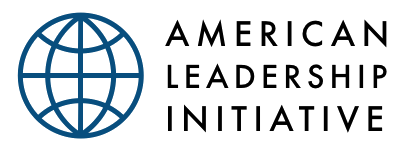ALI & CSIS Host Discussion on U.S. Climate Policy & Carbon Border Adjustments
/Speakers:
Congressman Earl Blumenauer, Chair Ways & Means Subcommittee on Trade
David Livingston, Senior Advisor, Office of the Special Presidential Envoy for Climate
Catrina Rorke, Vice President, Climate Leadership Council
Bill Reinsch, Scholl Chair in International Business, CSIS
Orit Frenkel, CEO, American Leadership Initiative (moderator)
ALI hosted a discussion on U.S. climate policy and recent developments in U.S. climate policy and carbon border adjustment mechanisms (CBAMs), covering the results of COP26, the U.S.-EU trade agreement on steel and aluminum, the EU proposal for a carbon border adjustment mechanism, and China’s role in the global climate and trade debate. The conversation noted the complex politics of climate policy in the U.S., the debate on WTO compliance of a carbon border adjustment scheme, and the need for consistent methodology to measure carbon emissions. Panelists noted the advantages that a CBAM may confer for the U.S., given that our most of our manufacturing, especially in steel and aluminum are less carbon intensive than from other countries, like China.
The conversation also included discussion of the following points:
The Administration’s approach to climate solutions, which is taking a long-term view, and focusing on building the right incentives domestically and globally to position U.S. industries and workers favorably.
China’s role in the climate debate, with recognition that it is in China’s own best interest domestically to reduce emissions, although the U.S.-China agreement out of COP26 was modest, and
The fact that less developed countries, will need time to adjust to stricter emissions standards, and will need financial compensation from the developed world to facilitate this transition.
A recording of the conversation is available here.



